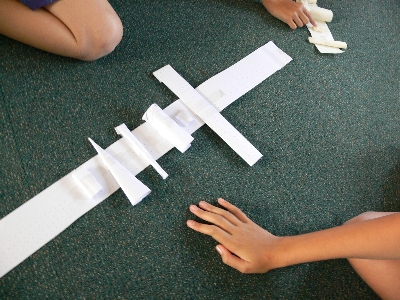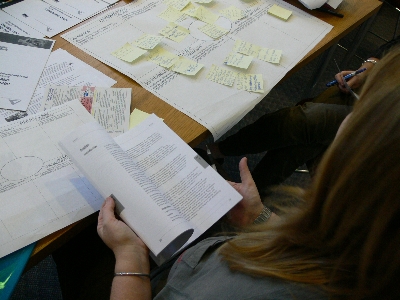
The Learning by Design project is an attempt to address the emerging needs of new learners via the intensive practical, pedagogical and professional development of teachers. Teachers involved in the Learning by Design project are engaged as reflective co-researchers.
The Learning by Design approach does not attempt to prescribe a pedagogical formula, and least of all a rigidly defined framework for documenting learning. Rather, its aim is to clarify the shape and form of pedagogy, its various Knowledge Processes and movements from one knowledge process to another, whatever that pedagogy may be. For this reason, a number of pedagogical crosswalks have been created, linking the Learning by Design concepts with some well known pedagogical schemas such as Bloom’s taxonomy and some of the project’s antecedent research and development endeavours.
The project team, together with the teachers involved in the research, have designed, used and redesigned the Learning by Design framework, which is both a planning tool and a pedagogical scaffold for the ‘knowledge processes’. The completed frameworks make explicit the previously implicit designs and design-decisions of teachers in a form that encourages evaluation, reflection and re-design.
Learning by Design lives in in the web learning platform Scholar, where teachers use to design and document their classroom practice to deliver to learners.. Completed frameworks designs-for-learning are shared with peers via a web-enabled publishing platform.

The Learning by Design project anticipates a future where teachers are authors—a movement from isolated classroom practice and consumer of mass-produced knowledge to a new role as knowledge creator and knowledge purveyor, a future when schools have become knowledge-producing communities.
The project is looking at a number of questions such as: What happens when teachers begin to produce rather than consume knowledge? How will teachers cope with the movement from private to public practice? How will we ensure the quality of published work? Just because teachers can author, publish and share their teaching practice will others use these resources? Why should Mrs. Smith be an author as well as a teacher?
Research Partners
Dr Eugenia Arvanitis, Greek Ministry of Education, Athens, Greece
Dr Peter Burrows, RMIT University, Melbourne, Australia
Dr Anne Cloonan, Deakin University, Melbourne, Australia
Rita Van Haren, Lanyon Cluster of Schools, Australian Capital Territory
Dr Raúl A. Mora, Medellín, Colombia
Mary Neville, Queensland Department of Education, Brisbane, Australia
Dr Helen Smith, RMIT University, Melbourne, Australia
Dr Keiju Suominen, Helsinki, Finland
Prof. Nicola Yelland, Hong Kong Institute of Education
